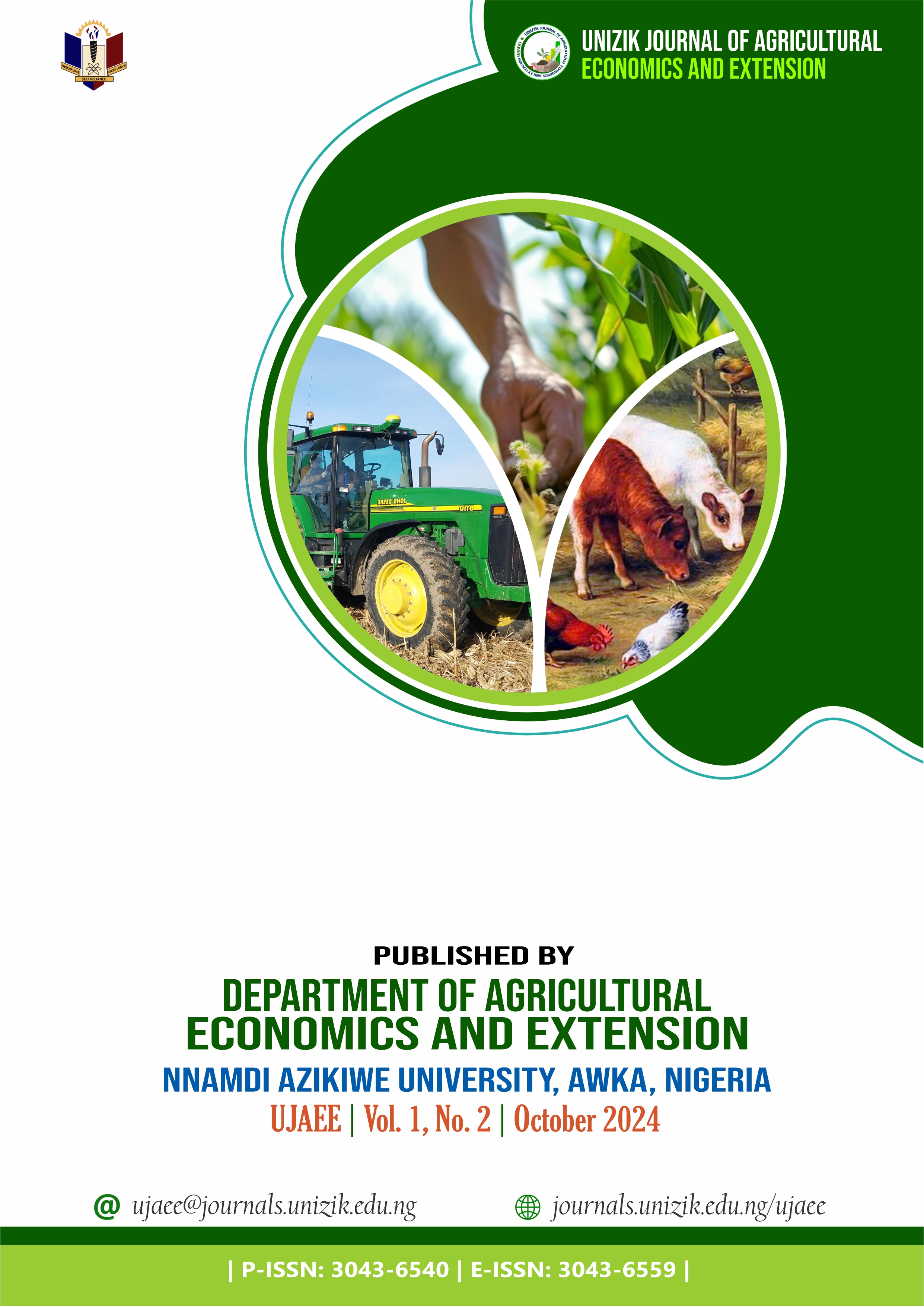The Effect of Fuel Subsidy Removal on the Maize Farmers in Kashere Ward, Akko Local Government Area of Gombe State, Nigeria
Keywords:
Effect on farmers, Fuel subsidy, MaizeAbstract
Fuel is crucial for agricultural logistics, facilitating the transport of inputs and produce. The recent removal of fuel subsidies has raised transportation costs, shrinking farmers' profit margins and potentially increasing food prices for consumers. The research findings can help policymakers develop socio-economically beneficial policies for all farmers, not just those growing maize. This study examined the impact of fuel subsidy removal on maize production in Kashere ward, Akko Local Government Area of Gombe State. The specific objectives were to identify the socio-economic characteristics of maize farmers, assess which farming activities were affected by the subsidy removal, evaluate its effect on maize output, and identify the constraints faced by farmers in the area. Data were collected from 294 farmers using a structured questionnaire and analyzed through descriptive and T-test statistics. The findings revealed that 81.23% of the respondents were male, with an average age of 33. Approximately 83.28% were married, 89.76% had at least a primary education, and 43.54% were members of farmers' cooperatives. Key farming activities negatively impacted by the subsidy removal included purchasing inputs (54.08%), transportation (96.26%), hiring labor (88.10%), and profits from sales (86.05%). The analysis showed a t-value with a p-value of 0.0000, indicating a significant effect of subsidy removal on maize output at the 1% level (P<0.01). Farmers primarily faced the constraint of high fertilizer costs, with 96.60% reporting this issue. Other challenges included diseases and pests (13.95%), low yields (22.79%), inadequate rainfall (21.43%), poor storage (28.57%), and lack of credit (35.37%). The study recommends that the government implement measures such as price controls to mitigate inflation and enhance public transportation to alleviate the impacts of subsidy removal. Additionally, there should be improved monitoring and strengthening of the existing fertilizer subsidy to prevent leakages and ensure timely access for farmers.
Downloads
Published
Issue
Section
License
Copyright (c) 2024 UNIZIK Journal of Agricultural Economics and Extension

This work is licensed under a Creative Commons Attribution-NonCommercial-NoDerivatives 4.0 International License.




